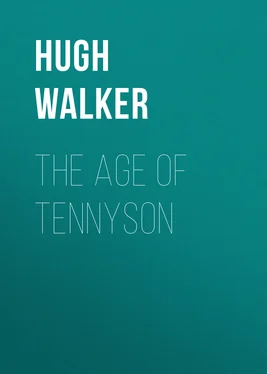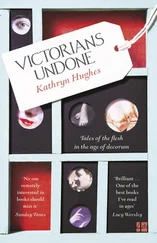Hugh Walker - The Age of Tennyson
Здесь есть возможность читать онлайн «Hugh Walker - The Age of Tennyson» — ознакомительный отрывок электронной книги совершенно бесплатно, а после прочтения отрывка купить полную версию. В некоторых случаях можно слушать аудио, скачать через торрент в формате fb2 и присутствует краткое содержание. Жанр: foreign_antique, Критика, literature_19, на английском языке. Описание произведения, (предисловие) а так же отзывы посетителей доступны на портале библиотеки ЛибКат.
- Название:The Age of Tennyson
- Автор:
- Жанр:
- Год:неизвестен
- ISBN:нет данных
- Рейтинг книги:5 / 5. Голосов: 1
-
Избранное:Добавить в избранное
- Отзывы:
-
Ваша оценка:
- 100
- 1
- 2
- 3
- 4
- 5
The Age of Tennyson: краткое содержание, описание и аннотация
Предлагаем к чтению аннотацию, описание, краткое содержание или предисловие (зависит от того, что написал сам автор книги «The Age of Tennyson»). Если вы не нашли необходимую информацию о книге — напишите в комментариях, мы постараемся отыскать её.
The Age of Tennyson — читать онлайн ознакомительный отрывок
Ниже представлен текст книги, разбитый по страницам. Система сохранения места последней прочитанной страницы, позволяет с удобством читать онлайн бесплатно книгу «The Age of Tennyson», без необходимости каждый раз заново искать на чём Вы остановились. Поставьте закладку, и сможете в любой момент перейти на страницу, на которой закончили чтение.
Интервал:
Закладка:
There is no such contrast in Carlyle’s other works to drive the sense of his error home; but the same error is present in them. It is far from being the case that their matter is essentially bad, or that Carlyle is essentially wrong. There is much that is wholly sound and good in Chartism ; but it is unrelieved and unbalanced. The same is true of the Latter-day Pamphlets . Even the much-abused Nigger Question is fundamentally right. What it means is that unless we organise free labour we had better give up boasting that we have set it free. The liberation of the West Indian slaves had brought to the verge of bankruptcy what had previously been the richest of British colonial possessions, robbed them of a prosperity which they have never fully recovered, ruined the whites, and deprived the blacks themselves of a government and discipline which Carlyle believed to be morally necessary to them, and therefore their right. There are several points of contact between this and the theory of Aristotle; there is also a general resemblance between it and the bold doctrine of Carlyle’s countryman, Andrew Fletcher of Saltoun, who, impressed by the evil of unorganised free labour degenerating into vagabondage, advocated the re-introduction of slavery. It does not follow from the evils pointed out by Carlyle that slavery ought to have been maintained; but it does seem a fair inference that the process of liberation actually adopted was ill considered, and was no subject for unqualified jubilation. If Carlyle had advanced such ideas in a moderate and conciliatory way he might have made converts. Instead of that, he was aggressive. He sowed the wind of provocation, and he reaped the whirlwind of opposition, rejection, sometimes of vituperation. It is vain to wish that he had done otherwise; he could only do as his character allowed him to do; but we shall do well to recognise that violence proved to be not strength but weakness, and that with more self-control he would probably have produced greater practical effect.
The class of writings dealing with literature and literary men is that to which Carlyle himself would have attached least importance. He was a man of letters by necessity rather than by choice. He would do nothing which did not promise him an opening into the sphere of the ideal, and literature was the only profession within his reach which seemed to do that. He would have preferred a life of action, provided the action had not for its end mere money-getting; and he declared there were few occupations for which he was not better fitted by nature than for that in which he spent his life. There may have been some exaggeration in this. If Carlyle had not by nature the faculty for writing, he made a marvellous faculty for himself. In favour of his own view, however, we may call to mind his well-known contempt for poetry, or rather verse, as it existed, and as he conceived it could alone exist, in his own day. Probably no born man of letters ever cherished such contempt, or ever submitted to be a writer of prose without some regret that he could not be a poet. Carlyle’s half-dislike and more than half-disbelief in his own profession shows itself in the fact that he escapes as soon as possible from the region of pure literature; and, while he remains himself a man of letters, he writes by preference about action and as little as may be about books and authors. His literary essays therefore belong principally to the first period of his authorship. Moreover, he betrays his tendency by his choice of subjects. He writes with most satisfaction on authors whom he can regard as teachers; on others he writes only of necessity and with little sympathy.
Carlyle’s creed was that a critic must first stand where his subject stood before criticism could be other than misleading. The way to write either fruitful criticism or true history was to read and reflect until it was possible to think the thoughts of men of the time or of the country to be commented on. He carried out these precepts by way of biography as well as of critical essays. Of his two biographies, the Life of Schiller , though good, is much the less interesting and valuable. The Life of Sterling by common consent ranks among the best in English literature. Carlyle’s work is, as a rule, remarkable rather for the presence of merits than for the absence of faults, but the Life of Sterling has few faults. It is exceedingly well proportioned, both in its several parts and with reference to its subject. Carlyle has moreover, while showing sincere friendship everywhere, preserved a wonderful sanity of judgment. It is impossible to rank Sterling’s performances high, and his biographer, while respecting the man and steadily believing him greater than his works, steadily refuses to eulogise mediocre writings. An air of moderation, of charity and of kindliness breathes over the whole, as if Carlyle still felt the influence of his dead friend. He has written greater things, but none perhaps equally delightful.
It is necessary to add a word about Carlyle’s much-debated style. But, in the first place, we ought in propriety to speak of Carlyle’s styles . He had two, practised mainly, though not exclusively, in different periods of his life. His early style was a clear, strong, simple English, almost wholly free from the ellipses, inversions and mannerisms associated with his name. These gradually grew, and appeared fully developed for the first time in Sartor Resartus . Carlyle retained but seldom exercised the power of writing in his earlier style. The Life of Sterling has more affinity to it than to his later mode. But when Carlyle’s style is spoken of, what is meant is invariably the style of his later books. It is over this that the battle has raged. There is no style more strange and unexampled in English, or more at war with ordinary rules. It is in the highest degree mannered, it seems to be affected, it is anything but simple. Certainly it is the last and worst of all styles to select for imitation. No man would ever advise another to give his days and nights to the study of Carlyle in order to learn how to write English. In the abstract, if it were possible to take it in the abstract, it would be described as an exceedingly bad style; but whether it was bad for Carlyle is less clear. Though it is not natural in the sense of being born with him, it is natural in the sense that it seems peculiarly adapted to his turn of thought. Could Carlyle have expressed his humour and irony otherwise? It is difficult to say; but at least he never did it with perfect success until he developed this style. If the style was really necessary to the complete expression of what was in Carlyle, then that is its sufficient justification. Among the various ‘supreme virtues’ which have been assigned to style, the only genuine one is just this, that it and it alone, whether simple or ornate, curt or periodic, best expresses the thought of the writer. Yet we are apt to exclaim after all, ‘the pity of it!’ If only the humour and irony, the intensity and passion, could have found a voice more nearly in the key of other voices! This style will almost certainly tell against the permanence of Carlyle’s fame. The world is a busy world, and the simple, clear, direct writer, the man whom he who runs may read, has a double chance of the busy world’s attention. Swift, whom Carlyle resembled in not a few ways, wrote a style unsurpassed for clearness and simplicity, yet he is not much read. How much less would he be read were Gulliver’s Travels written in the style of Sartor Resartus !
CHAPTER II
While it is in the prose of Thomas Carlyle that we first find a key to the ultimate and deeper tendencies of literature, it is in verse that we see most clearly its characteristics for the moment. In the interesting preface to Philip van Artevelde , published in 1834, Henry (afterwards Sir Henry) Taylor remarked that the poetry which had been recently popular, of which he took Byron’s as typical, was marked by great sensibility and fervour, profusion of imagery and easy and adroit versification; while it showed inadequate appreciation of what he called the intellectual and immortal part, and a want of subject-matter. ‘No man,’ he adds, ‘can be a very great poet who is not also a great philosopher.’ About the poetry of his own days, he says that ‘whilst it is greatly inferior in quality, it continues to be like his [Byron’s] in kind.’
Читать дальшеИнтервал:
Закладка:
Похожие книги на «The Age of Tennyson»
Представляем Вашему вниманию похожие книги на «The Age of Tennyson» списком для выбора. Мы отобрали схожую по названию и смыслу литературу в надежде предоставить читателям больше вариантов отыскать новые, интересные, ещё непрочитанные произведения.
Обсуждение, отзывы о книге «The Age of Tennyson» и просто собственные мнения читателей. Оставьте ваши комментарии, напишите, что Вы думаете о произведении, его смысле или главных героях. Укажите что конкретно понравилось, а что нет, и почему Вы так считаете.












